Dec 24: E-Stories
Day668 Kherson Sumy CombatSit Chornomors'ke SeaAzov BehindLines POL InRussia Matvienko Allies A&P Zelensky FT United24Gov KUI Raufoglu Grozoubinski ISW Brookings Kauffmann Junibai Panyi TikTok IWP
Catching up…
EA Worldview’s Ukraine Up-date- hop over to Scott’s amazing hourly Ukraine up-date page. I’ll fill in with some bits and bobs.
My best wishes to everyone over the holidays! We’ll be cooking up a storm for friends and family in the next few days.
Tanti auguri per le feste!
"Zavdyaki tobi" (Thanks to you): a song of thanks to the soldiers of the Armed Forces of Ukraine for the opportunity to celebrate Christmas and New Year appeared Don't forget those, thanks to whom we will live this new year in Ukraine, in Europe, in the world...(via Vadym Vietrov)
Stories we’re following…
Russia shells 6 communities in Sumy Oblast. The attacks targeted the villages of Bilopillia, Esman, Krasnopillia, Seredyna-Buda, Myropillia, and Druzhba. No casualties or damages to civilian infrastructure were reported.
Russia hit two critical infrastructure facilities in Kherson, Governor of Kherson oblast Oleksandr Prokudin reports. The attacks damaged civilian homes, a gas pipeline and a medical facility. 7 people are known wounded. One person reportedly died, but this is unconfirmed.
NASA finds out how much crops Moscow steals from Ukraine. According to NASA analysts, about 6.4 million tons of wheat and almost 1.5 million tons of sunflower seeds were harvested this year in the territories of Ukraine temporarily occupied by Russian troops.
Russian invaders in occupied Crimea have been recruiting locals for FPV drone operator courses at the centres of the Volunteer Society for Cooperation with the Army, Aviation, and Navy of Russia (DOSAAF), reports Ukraine's National Resistance Center (NRC).
"In the temporarily occupied territories of Crimea, the enemy is recruiting for FPV drone operation courses at the [DOSAAF] of Russia cells. You can get into the course only if you agree to go as a ‘volunteer’ for the war of aggression against Ukraine upon completion."
US President Biden has signed the bill on annual defense spending, which provides for a record amount of 886 billion dollars for the Pentagon, which includes aid for Ukraine.
Combat Situation Update
The Russian occupiers have carried out attacks on 6 fronts over the last 24 hours, the hottest spot being near Avdiivka, which the Russians are trying to encircle without success, with 75 combat engagements taking place there yesterday, reports General Staff of the Armed Forces of Ukraine on Facebook, information as of 06:00 on 23 December.
Sivershchyna and Slobozhanshchyna fronts: the Russians maintain their military presence in the border areas, conducting active sabotage activities to prevent the deployment of Ukrainian troops to vulnerable areas, and increasing the density of minefields along the state border in Russia’s Belgorod Oblast.
Kupiansk front: Ukrainian defenders repelled 16 Russian attacks near the settlement of Synkivka (Kharkiv Oblast), where the Russians were trying to break through the Ukrainian defences.
Bakhmut front: Ukrainian soldiers repelled eight Russian attacks near the settlements of Bohdanivka, Ivanivske, Klishchiivka and Andriivka (Donetsk Oblast).
Avdiivka front: Ukrainian Defence Forces persisted in holding back the Russians, as they have not stopped their attempts to encircle the town of Avdiivka.
Melitopol front: Ukrainian defenders are taking active steps to inflict losses in military personnel and equipment on the Russians, exhausting them along the entire line of contact.
Kherson front: Ukrainian soldiers continue their efforts to expand their bridgehead. The Russians, despite their failures, did not give up their intention to drive Ukrainian units from their positions and carried out 17 unsuccessful assault operations.
Noel Report: Occupied Ilovais'k in the Donetsk region. The location is near the railway station close to fuel tanks and other storage facilities.
Explosions reported in Chornomors'ke, occupied Crimea. This particular area is known from earlier attacks on Russian S-300/400 installations.
Russia has withdrawn its warships from the Black Sea and the Sea of Azov, - the AFU Navy "As of 08:00 on 23.12.2023, there are no enemy ships in the Black Sea and the Sea of Azov. In the Mediterranean Sea 4 enemy ships, among them 2 carriers of cruise missiles "Kalibr", the total salvo of up to 16 missiles", - stated in the message.
President Zelensky thanks the troops for the eliminating three SU-34s. In the coming days, we may learn if this is the work of the Patriot missiles or not. The fact remains that with the appropriate kit, the Ukrainians can increase their capabilities to overcome the advantage of mass that the Russian forces have on the battlefield.
"The cost of just one Su-34 can amount up to $50 million. These are one of the newest jets in service with the Russian Air Force," Ukrainian Air Force spokesman Yuriy Ignat comments on the destruction of 3 Su-34's in the southern direction. Presumably by Patriot AD system(s).
ISW: Western officials should not overstate Russia's failures in Ukraine. As military aid to Ukraine stalls and the country girds itself for a difficult winter at war, these comments may suggest that Western support for Ukraine is not urgently needed, the ISW warns.
Powerful explosion reported in occupied Armyansk, Crimea. Local residents heard a loud explosion in the northern Crimean city of Armiansk around midnight local time on Dec. 23, according to Radio Free Europe/Radio Liberty. Armyansk is important becuase it is one of the gateways into Crimea. It is strategically imperative that the Ukrainians defeat the Russians there. This will take time as the terrain presents other kinds of challenges for the UAF. Striking Dzhankoi is key to Russian logistics. (Map credit: Financial Times)
United24.ua.gov: The Ukrainian Armed Forces send a message at Christmas.
Russians prevent IAEA experts from accessing reactor rooftops at Zaporizhzhia NPP. Russian occupation authorities continue to prevent the International Atomic Energy Agency (IAEA) experts from having full access to the territory of Zaporizhzhia Nuclear Power Plant (ZNPP).
KIU—Russian Officers Killed in Ukraine: “At least 3 328 Russian officers have been eliminated in Ukraine since 24. February 2022. Confirmation for each name from a Russian source is available in our dataset — obituary, grave, memorial plaque, etc.”
Behind the Lines
Over 4,000 lorries are queued up at the Polish-Ukrainian border as of the morning of 23 December, reports Andrii Demchenko, Spokesperson for the State Border Guard Service of Ukraine, duringthe national joint 24/7 newscast. Demchenko noted that four checkpoints – Rava-Ruska, Krakivets, Yahodyn and Shehyni – are still blocked.
PM Shmyhal: Total investment in Danube ports’ infrastructure about $100M. Twenty-three new cargo transshipment terminals have been opened at the Danube ports at the expense of private investment.
Germany has completely replaced Russian gas with Norwegian gas. Before the war, "Gazprom" provided about 60% of Germany's gas consumption. A supply cutoff last year and the "Nord Stream" explosions stopped supplies. Now 60% of consumption is provided by Norway.
Tondo: It’s How I Contribute to Victory—Inside Ukraine’s florist industry
At the beginning of the Russian invasion of Ukraine, with Moscow’s troops just a few miles away from Kyiv, a sudden explosion from an incoming mortar sent shock waves through the glass of one of the largest greenhouses in the outskirts of the capital. Despite the chaos, a few hours after the blast a small group of workers inside the facility carried on with their invisible yet crucial task for the country’s morale and resilience – to cut flowers.
Flowers have always held a special place in Ukrainian culture, but their significance has soared during the conflict. They have become a means to express collective grief, a symbol of resistance, and a testament to the Ukrainian people’s determination to persevere despite the adversities they face. At the beginning of the war, in a powerful moment shared on social media, a woman confronted a heavily armed Russian soldier and offered him sunflower seeds, saying, “Take these seeds and put them in your pockets so at least sunflowers will grow when you all lie down here.”
Flowers serve to honour Ukraine’s fallen soldiers and the victims of Russian strikes. They also continue to celebrate life’s milestones, such as weddings, baptisms, and birthdays.
Even in the war-torn cities, soldiers arrive at train stations with large bouquets of red roses, bringing smiles to the faces of those around them. After Ukrainian cities are liberated from Russian occupation, flowers are given to the military by grateful inhabitants. Throughout the country, flower shops have remained open for business, including in the frontline town of Sloviansk. [continue]
Meanwhile in Russia
Elections in Russia: he head of the Russian Central Election Commission, Matvienko, is trying to convince everyone that the election system in Russia is working "openly and honestly" According to her, they are even ready to invite international observers, but only from "friendly countries". Yes, she really did say this. The election monitors will be hand picked from the list of proxies that work for the Russians in the EU.
Ridiculous comments abound in Russia: "There are no facts that Russia is destroying Ukrainian cultural heritage," Foreign Minister Lavrov at the general meeting of the Russian Commission on UNESCO affairs. (Me: I think they think we’re all stuck in the Cold War somehow and that we’re blind to their lies.)
Main Message: The Russians will begin "cleansing" of the population, like Mariupol and Bucha.
Millions of Ukrainians will flee abroad;
A state free from Russia can survive in the west of Ukraine, even probably join the EU;
Putin will control about a quarter of the world's grain exports;
Putin's success will inspire dictators to invade neighboring countries;
If Putin attacks the Baltic states, NATO will probably send troops. But as soon as several hundred Western soldiers die, right-wing parties will demand "peace" - negotiations with Putin.
Allied Support
ISW: Why are US choices over Ukraine so inexplicable?
“Russia has managed to shape Americans’ understanding of reality such that the United States willingly chooses to act against its interests and values without realizing that it is doing so. Russia will have manipulated America into abandoning its own interests in a fight it could and should have won.”
Me: please read the highlights to this important piece by Nataliya Bugayova at ISW which I’ll be posting in a EuroFile Articles. In 1953, the Russian military established a policy of influencing foreign governments, especially the U.S., via various vectors: the aim was to shape foreign perceptions of the Soviet Union to the extent that the Western democracies would act against their own best interests and in the interest of the Soviet Union.
The Russians were highly successful, as they are now. Bugayova has perfectly distilled what I’ve been banging on about for quite some time. The concepts she so ably describes are not given any attention in most governments in the West, with the exception of a few in Northern Europe that have lived under Soviet occupation.
Breaking the will of a nation to act in its own interests requires great skill and goes beyond the material. In a poor country like Russia, besides relying on willful allies for armaments and ammunition, the leadership must make use of these operations in order to win a campaign or war. It’s proactive, offensive non-kinetic warfare which accompanies its kinetic effort.
Christiane Amanpour: “It will become a more dangerous world and we will be more vulnerable” if Putin wins the war in Ukraine, says NATO chief Jens Stoltenberg. It’s “a very dangerous lesson” if Russia “can invade neighbors and they get what they want,” he warns.
The EU is sending 500 power generators to Ukraine.
“Continued brutal attacks by Russia have left Ukrainian energy infrastructure fragile. We are sending an additional 500 power generators to Ukraine, bringing the total to over 5,500, to ensure a sufficient energy supply and to keep vital services running.”
London mayor agrees to send scrap cars to Ukraine. Mayor Sadiq Khan had previously rejected a proposal to send cars that do not meet London's Ultra Low Emission Zone (ULEZ) standards to Ukraine instead of the scrapyard.
The New Cold War: European leaders are increasingly concerned that the war in Ukraine has reached a stalemate and that allies are lagging behind Russia in arms production, as reported by Politico, Ukrinform reports.
“Russia has the capability and the ability to go on with this war for years,” Finnish Defense Minister Antti Häkkänen said during a visit to Washington this week where he signed a new defense agreement with the U.S.
According to Hekkänen, part of the problem with increasing defense production in the West was the slow recognition that a full-scale invasion of Ukraine by Russia had forever changed the political landscape of Europe.
Hekkänen added: "I think many Western countries were thinking that this was a short-term” problem. But now I think that in the U.S. and in NATO countries, almost everyone knows that this is the end of the last 30 years” since the Soviet Union fell. “Now we’re going into some kind of a new cold war.”
Although the battlefield is frozen, in the long term "Ukraine has a good chance to win" because Western countries "have bigger economic muscles and can ramp up their defense industry to the kind of levels that Russia can’t compete with."
"We can do it, and Ukraine can, but it needs decisive steps from Western countries," added Hekkianen.
Happy Holidays from the Brookings Institute. I had to put this in. Yes. It’s real. They missed Italian: Buon Natale!
FT- Kauffmann: Europe must not be caught short if Trump wins again.
The political culture in Washington is already chaotic and unpredictable enough. Even if Biden wins, he may well be the last pro-European president of a country now turned towards China and the Indo-Pacific. The challenge looming in the defence and security arena is of particular concern in Europe because of Trump’s well-known aversion to Nato; but also because war has returned to the continent. Russia’s war against Ukraine is, after all, a European war. American voters may grow tired of it, but Europeans do not have that luxury. The question inevitably arises, as Congress blocks a package of financial aid for Ukraine: can Europe step up?
It must. Camille Grand, a former Nato assistant secretary-general for defence investment now with the European Council on Foreign Relations, believes that Europe has the capacity to take its share of the burden. “What is needed”, he tells me, “is to think more strategically and to make decisions now. We have been too slow. We need to get this conversation going: what is our plan to complement the American military assistance for Ukraine? What is our plan building up conventional forces and for nuclear deterrence? This is crucial, either to be better positioned in case of a Trump win, or to help Biden sustain support to Ukraine.”
Interestingly, this conversation is also getting traction in Berlin. In a recent interview, German defence minister Boris Pistorius pleaded with European countries to pay attention to the danger facing the Baltic states, plus Georgia and Moldova. Vladimir Putin’s threats should be taken seriously, he says. European countries must now adapt to the new geopolitical landscape, including a possible reduction of American foothold on the continent. “It will take time for our defence industry to increase its capabilities”, Pistorius warns. “We now have five to eight years to catch up, in terms of the armed forces, industry and society.”
As Putin has placed Russia’s economy on a war footing, European political leaders should be pressing the defence industry to shift its priority from lucrative exports to the Gulf countries and back to their continent. Trump-aligned think-tanks advising the US to pivot away from Europe and promoting the concept of a “dormant Nato” have finally inspired brainstorming in Brussels about reinforcing the European pillar of the alliance.
“Dormant Nato” should be a wake-up call for Europe. There are only 11 months left.
Azamat Junisbai: the Russian ‘opposition’
This piece offers a helpful, even if depressing, illustration of the worldview shared by many Russian opposition figures. It is a bleak picture. But looking away is dangerous. A realistic understanding of 🇷🇺 society, of which 🇷🇺 opposition is an integral part is essential.
The very first sentence in the article refers to Russia’s war in Ukraine as “Putin‘s invasion.” The categorical refusal to acknowledge that Russian society bears any responsibility for the horror perpetrated in Ukraine has become a signature of Navalny supporters.
They dedicate much of their energy to fighting the restrictions imposed on Russians in Europe. They complain bitterly about the decisions by Baltic countries to tighten entry rules for 🇷🇺 citizens and attack various banking restrictions that inconvenience Russians.
Predictably, they also complain about and fight against general sanctions imposed on Russia and Russian citizens. As their country carries out a genocidal war of aggression against Ukraine, these are the concerns they are demonstrably preoccupied with.
Conspicuous by its absence is any discussion of the problem of Russian imperial revanchism or the record high approval ratings enjoyed by Putin after the attack against a former colony. What is clearly present is the typical tone deafness of a Russian lecturing Ukrainians.
The author smugly instructs Ukrainians that it is time for them to add their voices to the causes that are dear to “the Russian opposition.” The absurd tenor of the article should provide a sobering reminder to those who harbor illusions about Putin’s opponents in Russia.
To be fair, Russian opposition members who admit that 🇷🇺 has an imperialism problem and that sanctions must be
strengthened exist. There are Russians who fundraise and even fight for 🇺🇦. But they are rare while those with views on display in this article are depressingly common.
Szabolcs Panyi on the Visegrad Break-up
The Visegrád cooperation is now officially dead. Viktor Orbán's political director Balázs Orbán (Hungary's rumored possible next foreign minister) launches a smear campaign against the new Polish government, accuses it of being part of the 'Soros conspiracy'.
There's a lot to unpack here. First, Viktor Orbán claimed a few days ago that, since the Visegrád Group has fallen apart, he is "working on (to figure out) how we can put it back together". Since all political messaging within his government are closely coordinated, his lieutenant's recent attack on the Polish government clearly indicates he wasn't telling the truth. The V4 was instrumental to Orbán as long as it had been an axis of 'illiberal' governments and likeminded leaders (like Andrej Babiš). But it's no use to Orbán anymore, and he's more interested in undermining the new Polish government than trying to mend ties and find some common ground for possible cooperation. These undermining efforts won't hurt Poland much – on the international stage, the country is playing in a very different league than Hungary – but it will further isolate Hungary for sure.
Second, both Viktor Orbán and his (current) foreign minister, Péter Szijjártó, said it many times that "we do not interfere or intervene in the internal political processes of other countries" and do not comment on other countries' internal affairs. Obviously, it is also a lie, however, going as far as attacking Poland's minister of justice based on where he graduated, or shaming the marshal of the Sejm for hosting refugees... well, that's a new low for sure in Hungarian-Polish relations. What's completely new here is that, regardless of their differences on Russia and Ukraine, Orbán's government has so far not applied its super aggressive, completely undiplomatic rhetoric when talking about Poland. Now the gloves are off.
Third, about Hungary's 'sovereignty efforts', and who is orchestrating what: Árpád Habony and Századvég, Viktor Orbán's long-time spin doctor and the Hungarian government's main advisory/policy think-tank, have been secretly working for the Law and Justice campaign, as we revealed in our latest V-Square Project newsletter. Polityka had already wrote a story on how some within Law and Justice blame their election defeat on unnamed 'Hungarian campaign advisors' who pressed for divisive, aggressive messages in the later stages of the campaign – which inadvertently resulted in firing up opposition voters, a huge election turnout, and Donald Tusk's return to power. Now it clearly looks like the Orbán government is unable to learn from its mistake, and still thinks that pushing Law and Justice into even more radicalisation - through feeding them with Hungary-cooked bogus conspiracy theories - will somehow pay off in the end.
As someone who deeply cares about Polish-Hungarian relations, I find all this extremely harmful and stupid.
TikTok: the Chinese are gaming it.
NEW: Study indicates that TikTok content is being amplified or suppressed based on whether it aligns with the CCP’s geopolitical interests. Rutgers / @NCRI_io research shows massive difference in pro-CCP content on TikTok compared to other major social media platform. “It’s not believable that this could happen organically.”
Xinjiang Victims Database
It took nearly two years of research, translation, crosschecking, development, and processing, but we've finally imported a list of 18000+ prisoners who were interned before 2016, largely on political and religious grounds.
It includes 100 who were detained following July 5, 2009, and 15000+ who were sentenced following the 2014 start of the "People's War on Terror", among many others, many previously reported in media, such as Ilham Tohti's students-database, while ~15000 are new additions.
Many theoretically released as of 2023, but many still in prison (since 2010-2015). We'll be preparing a formal summary in the coming weeks.
Original source here, which we advise those with relatives or friends detained and sentenced in 2015 or before to consult.
Given the number of victims and the level of detail, a lot of our general numbers and estimates will likely jump now. For example, the minimum reparations for detention have doubled (from 3 billion RMB to 6.5).
Programming note…
In Ukraine, Russia has presently redeployed a trusty Soviet propaganda trope: “liberation from Nazism.” This narrative is, of course, mendacious. Yet, every lie contains a kernel of truth. Our objective here is to extract it and put it in its proper context. We shall consider “liberation” and “Nazism” separately.
“Liberation from Nazism” is standard Soviet cliche originating in the Second World War. However, Moscow also lustily employed it during the crushing of the Polish Poznan uprising in June 1956, the Hungarian insurrection in November 1956, and the Czechoslovak upheaval in August 1968.
In fact, throughout its history, the USSR justified its imperialist aggression invariably in terms of bringing “liberty” and annihilating evil. Usually, the target was “fascism/Nazism/Hitlerism” but there were derivatives such as “imperialism,” “oppression,” and so forth. Often the Soviets would refer to their actions as “rendering fraternal assistance.”
All those propaganda threads are present today in the war in Ukraine. A more sophisticated iteration of “liberation from Nazism” focuses on the Western public, while its cruder form targets domestic, Russian audiences.
About the speaker: Dr. Chodakiewicz holds the Kosciuszko Chair of Polish Studies at The Institute of World Politics and leads IWP’s Center for Intermarium Studies. At IWP, he also serves as a Professor of History and teaches courses on Contemporary Politics and Diplomacy, Geography and Strategy, Mass Murder Prevention in Failed and Failing States, and Russian Politics and Foreign Policy.

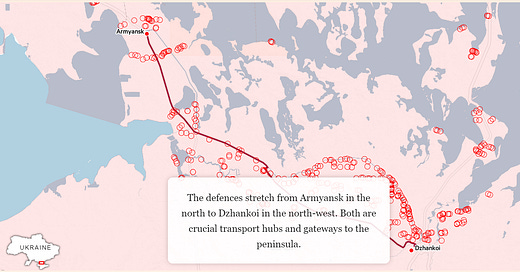







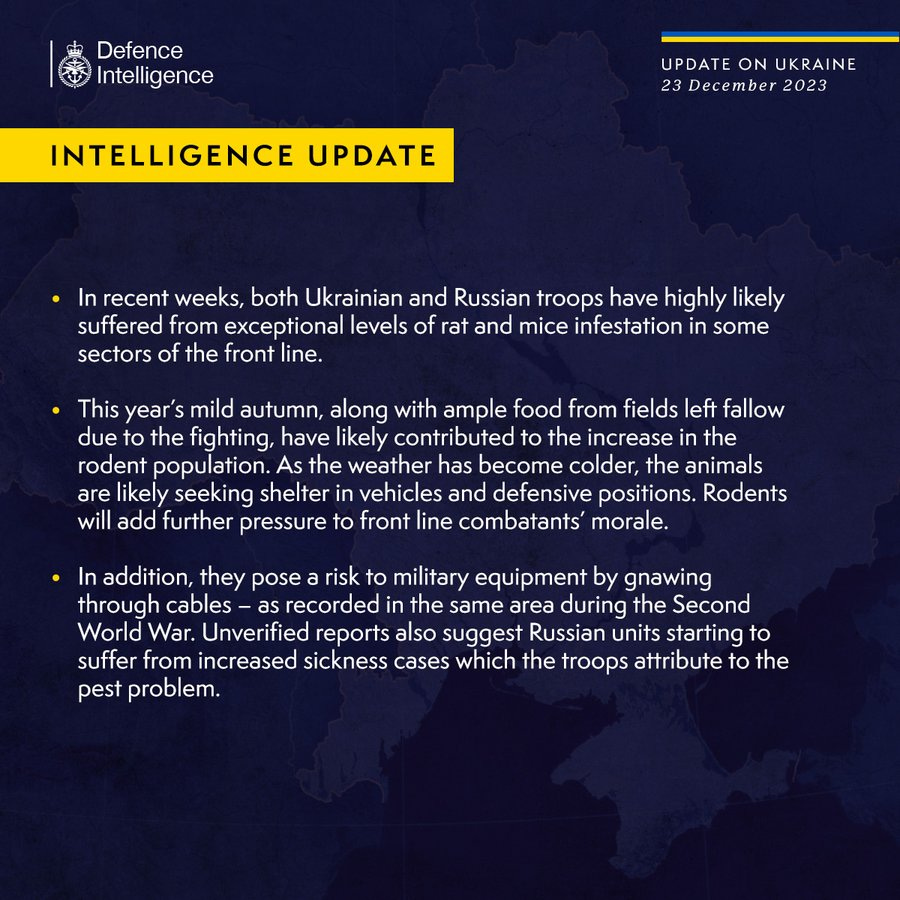
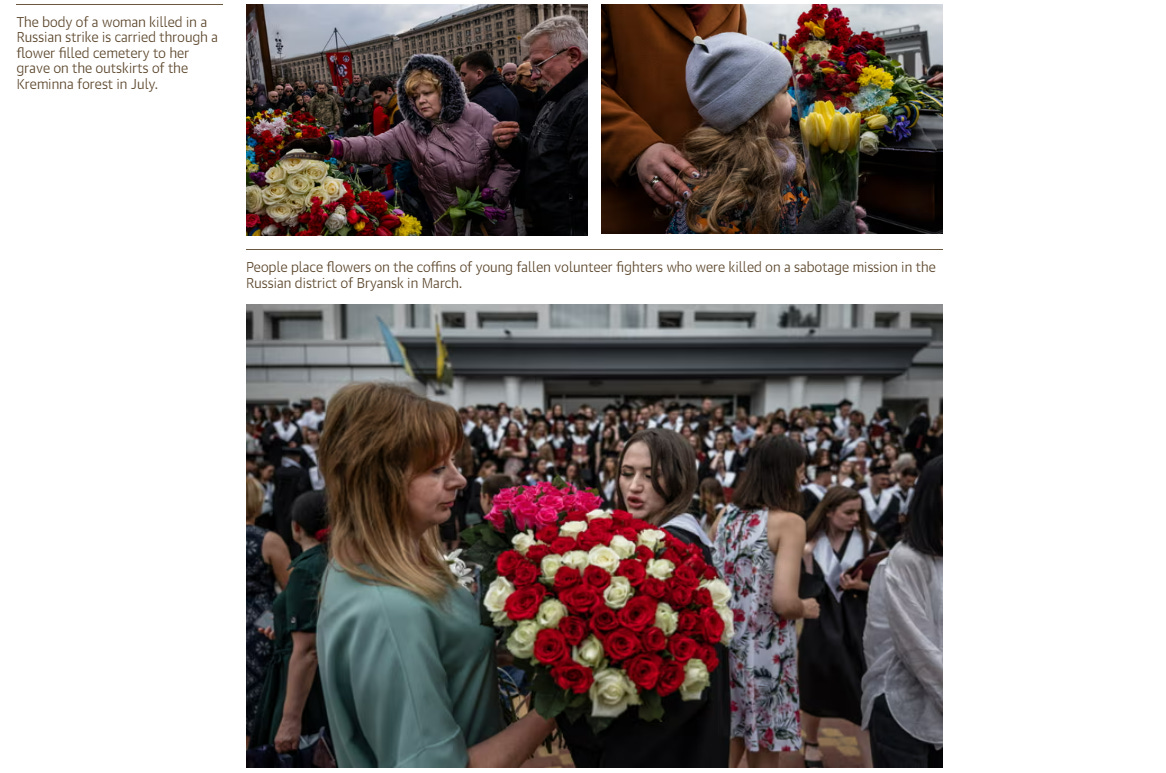



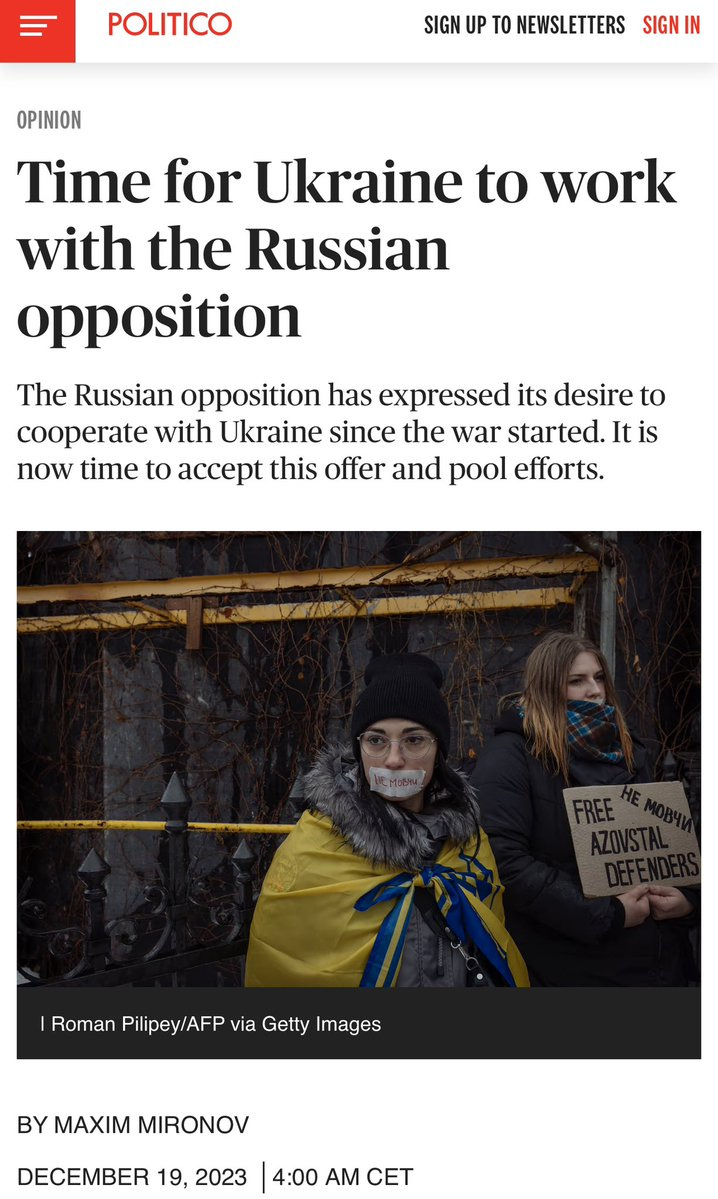
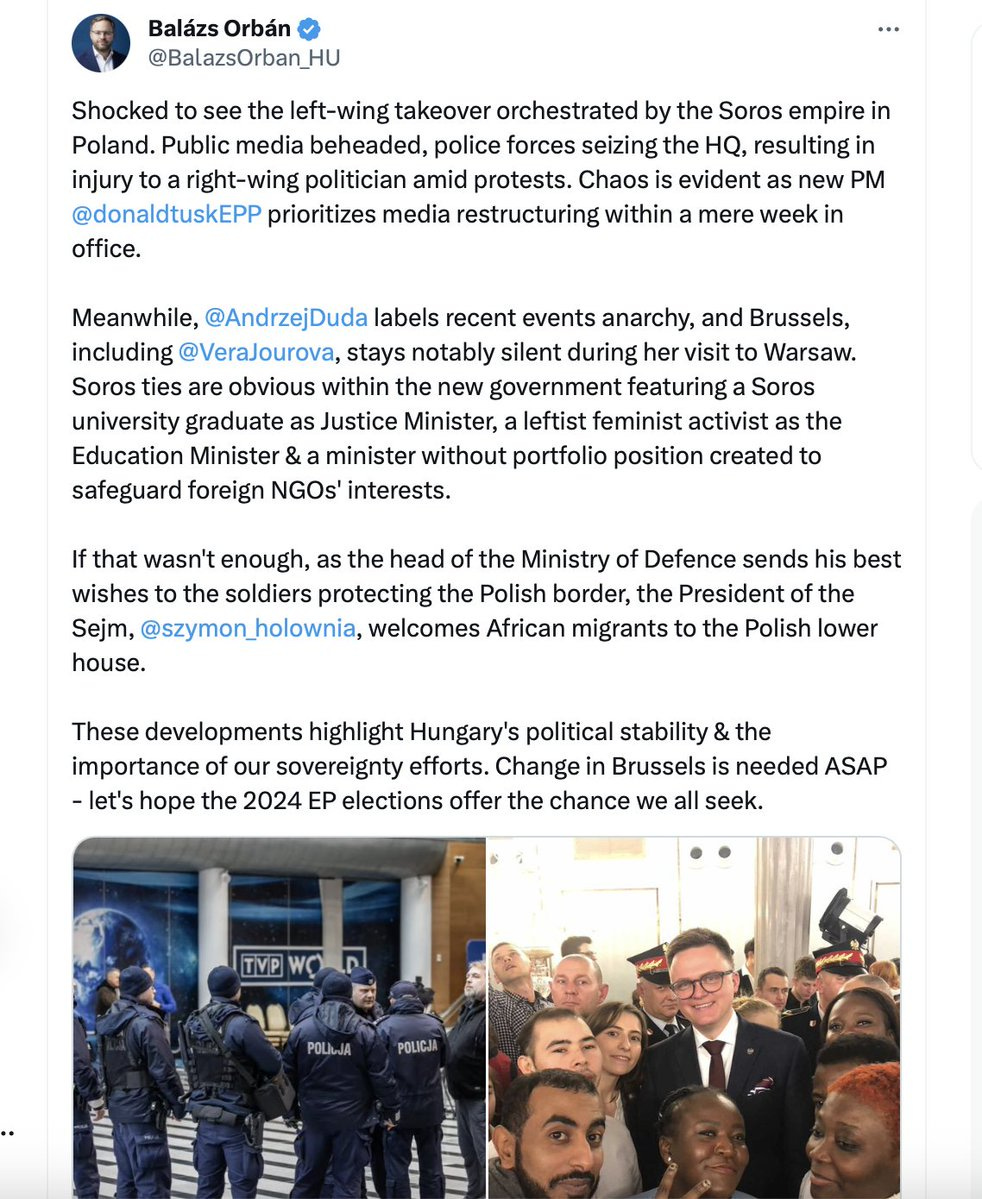

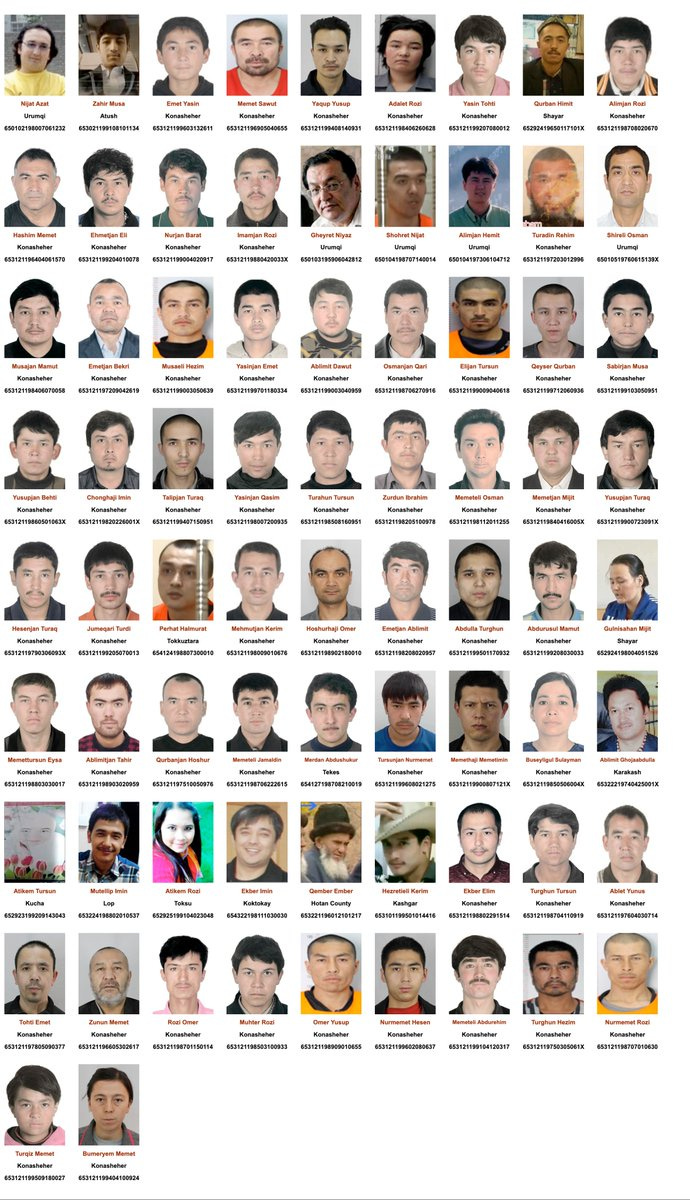
In a war of attrition, Ukraine will lose. Therefore to compel the war to be slow-walked as the west is presently doing, is to ensure failure. Russia rattles its nuclear missiles as a threat, believing rightly so far, that fear alone can defeat the west.
And I don't wear rose glasses about the west. They aren't the shining examples of true freedom either. But a Russian sweep through would be even worse.